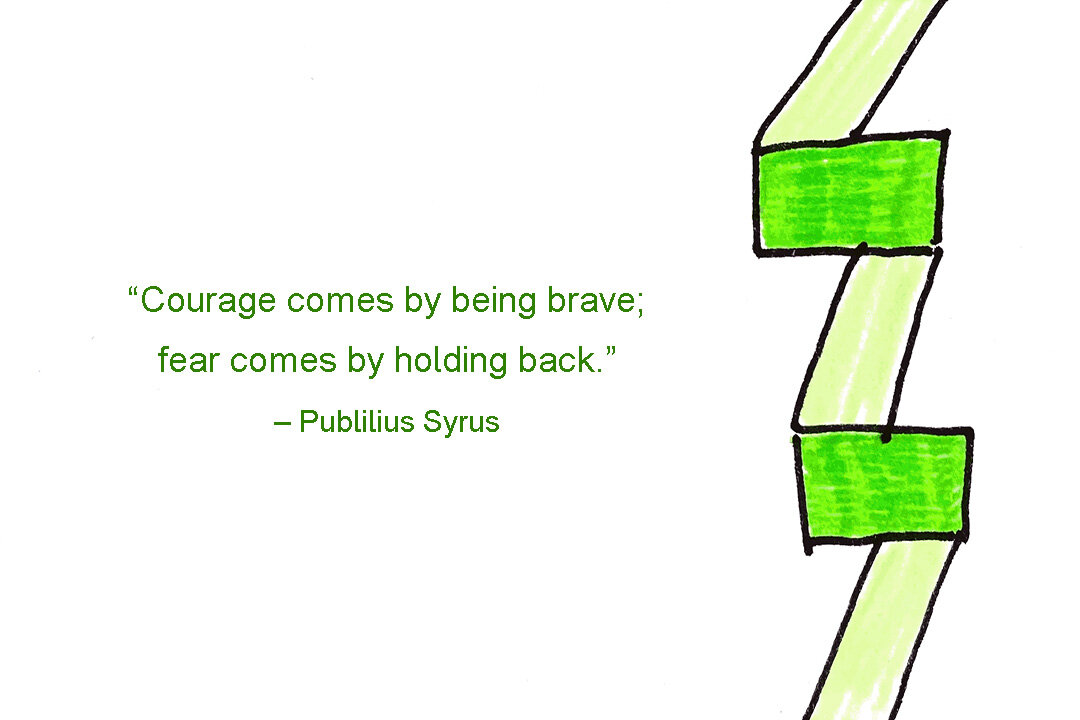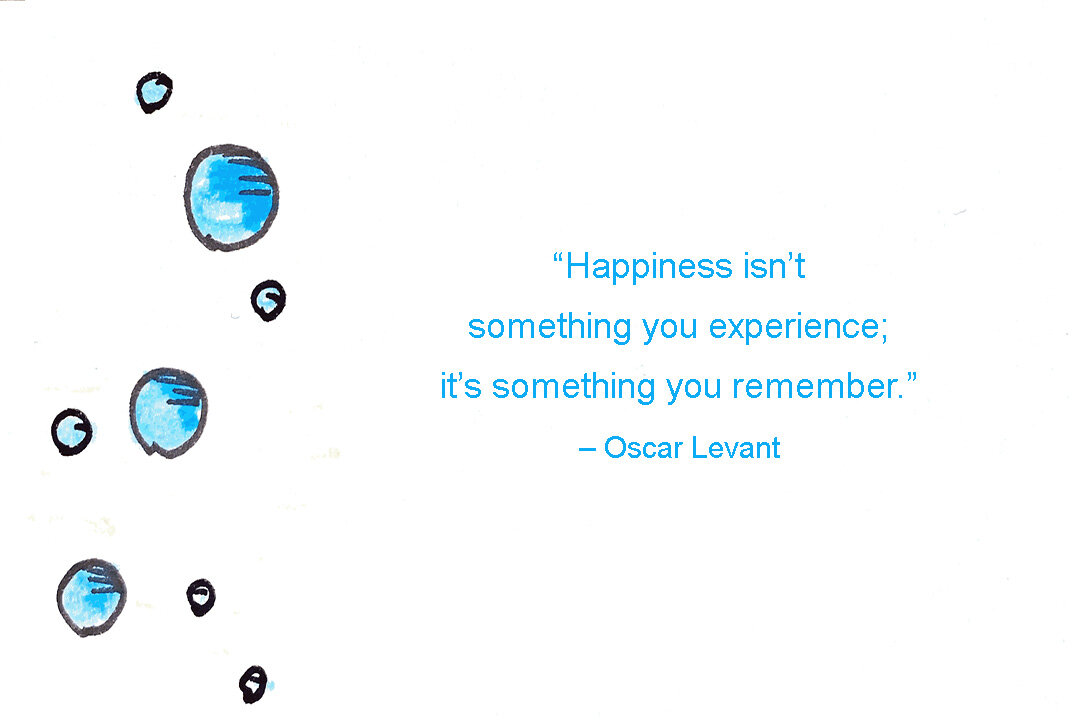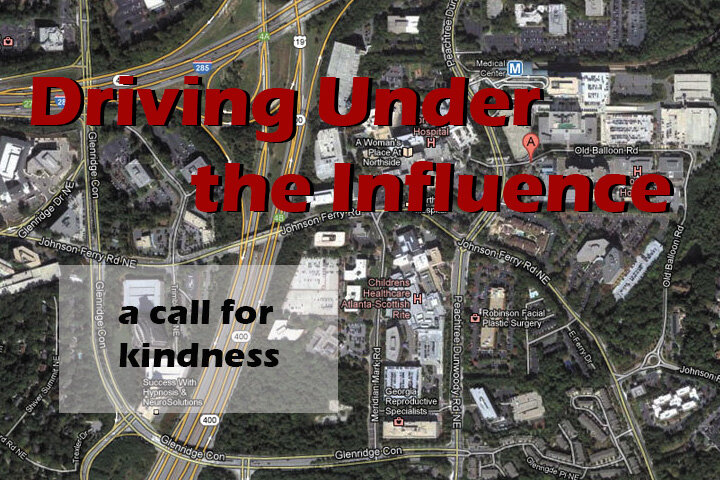“If you want something new, you have to stop doing something old.” – Peter Drucker
Viewing entries in
#lifehack
“Don’t find customers for your product. Find products for your customers.” – Seth Godin
I’ve been thinking about gratitude. As many of you know, I am a thank you note writer. I have always done hand-written thank you notes. Since my elementary school days, I thanked friends for coming to my birthday party. And in recent years when I have thanked customers for their business, colleagues for their generous referrals or introductions, and press for covering our company or brands. I even love the Tonight Show bit with Jimmy Fallon where he writes comical thank you notes.
This became more and more rare as time went on and email dominated written communications. I am sure some thought it old-fashioned (like something their grandmother would insist upon while criticizing their penmanship) or a quirky gimmick of a marketer (and perhaps were too nice to tell me). In any case, it was a differentiator. I would often get a thank you email to thank me for my thank you note!
Today, we are in the midst of a pandemic and increasingly people are working from home or other private places, sometimes temporary locations in the homes of extended family. We are, everyday peeking into the private spaces and lives of our colleagues and customers with the miracle that is video conferencing.
And now the work mailing addresses on company websites are not reliable ways to reach individuals who might not be back into the office for months (and might not think about checking their mail slot at all). And even when I know someone’s home address, I feel like it is a particular act of intimacy to send something to someone’s home.
So, I find myself writing emails. Or, regrettably, thanking people verbally on the phone, and not following up as I should or know to do with an email or other gesture afterwards.
So, what do you think I should do?
Move to email like everyone else, but be very diligent about doing it in a timely manner? Should I write out a note, snap a photo and include it in an email (I have done this before when things have come back undeliverable, but never sure if it is appreciated or just weird)? Should I do some sort of social shout-out instead thanking people for being so awesome? Should I get over my reservations and continue (or resume) writing thank you notes? Should I come up with some other signature show of gratitude (eg, like emailing them that I am making a donation in their name or something)?
I am open to ideas and your thoughts on whether COVID is accelerating the slow death of hand-written thank you card and what we should do about it. I posted this out on LinkedIn as well and will do a recap post here in a few weeks with all the best suggestions.
“If you want to understand how a lion hunts, don’t go to the zoo. Go to the jungle.” – Jim Stengel
I work for AWS Training and Certification and we offer digital badges for those who successfully pass our rigorous technical exams to achieve AWS Certification. As of late, I have become a student of these badging programs and the wealth of training opportunities that exist for professionals and aspiring professionals on a wide range of topics.
I often learn about new programs by checking out the LinkedIn profiles of my contacts . Here are a few that caught my eye recently that might be of interest to you. Because of recent events and a concern for health and safety and getting people productive in the economy, so many training opportunities and many of the related certifications are available for free. These are in addition to the large catalogs of academic and continuing education offerings from companies like Coursera, edX, Udemy, Udacity, LinkedIn Learning, Salesforce Trailhead, and more.
What others would you recommend? Put them in comments or message me on LinkedIn or Twitter and I’ll add them here!
MARKETING
Google Ads, Analytics Academy, and Google Marketing Platform by Google (free)
Bing Ads Certification by Microsoft (free)
The Conversational Marketing Certification by Drift (free)
Video Badge from Twitter Flight School (Free)
HubSpot Academy with topics for individual certs range from content marketing, email, inbound, social media, and sales (free)
Social Media Analytics by Quintly (free)
Email marketing by MailChimp Academy (available to members of their MailChimp & Co partner program for freelancers and agencies)
Pragmatic Institute with topics including marketing, launch, and pricing (classes run $1,195)
Adobe Analytics and Adobe Marketo Engage from Adobe (prices range from $95 to $225)
Social Media Certification from Hootsuite Academy ($199)
Facebook BluePrint Certification ($150)
Digital Marketing Certification from American Marketing Association ($249 for Members)
EVENTS
Event Professional Certification including Virtual and Hybrid Events by Cvent (free)
Virtual Events Institute Certified (rates vary from $975 standard to discounts for students, freelancers, and open to work)
Certified Meeting Planner by the Events Industry Council (requires 3 years of event industry experience; $250)
Fundraising Event Management Certificate by Event Leadership Institute ($636 member course cost)
Inclusive Event Strategist Certificate by Meeting Professionals International ($299 for members for class)
Certified Event Designer by Event Design Collective (on-site 3 day class, 6 months of coaching; cost of 2750 euros)
DESIGN THINKING
Enterprise Design Thinking by IBM (5 tiers; free)
Foundations in Design Thinking Certificate by IDEO ($1200)
As you might imagine, there are a number of outstanding academic programs, beginning with Stanford University who helped pioneer the category.
MACHINE LEARNING
AWS Certified Machine Learning - Specialty by AWS ($300)
Machine Learning by Stanford University on Coursera, taught by professor and Coursera founder, Andrew Ng (audit for free or purchase course with sharable certificate for $79)
A recent LinkedIn post by a fellow marketing exec, Jo Ann Herold, got me thinking about the best advice I have ever received.
I have been blessed with many wise mentors, coaches, and peers from whom I have learned. It is hard to pick just one piece of advice. That said, one did stand out.
Ask more questions
Maybe like you, I am a time-starved, experienced, and opinionated person who makes their living solving problems, anticipating problems, and rallying others to do the same. So, I am quick with answers. But I have learned (or am learning, to be more accurate) that more is accomplished with questions. Through questioning, root cause can really be established, customer needs can be fully understood, the talent of team members can be brought to bear, and alignment occurs more naturally. Asking “why?” five times is the staple of lean thinking and there is magic in asking questions. As a communicator-at-heart, my tendency to tell or sell can get in my way. I know I am not alone.
The other reason that asking questions is powerful is that there are more things to know than I will ever know. Others have forgotten more about subjects that I don’t know anything about. The pace of innovation, information sharing, and interconnections between us is growing so fast that the only skill or knowledge that any of us can hold for any length of time is the ability to learn and be curious.
I have a sticker on my laptop that says “Ask More Questions” (which my son picked up for me at an Alpha class he attended and thought I would like). It is a good reminder that I could heed more often.
“No is the best word.” – Nick F. Nelson
You probably know enough. Act now.
“The more you use your brain, the more brain you will have to use.” – George Dorsey
“Courage comes by being brave; fear comes by holding back.” – Publilius Syrus
“Happiness isn’t something you experience; it’s something you remember.” – Oscar Levant
“Cowards never start. The weak never finish. Winners never quit.” – Unknown
Giving is what we do best. Like a bird for whom flying is their characteristic action. Although they can walk and cling, not until they fly are they living at their best, gracefully and beautifully.
– Eugene Petersen (note: not a direct quote, but a summary of a few sentences)
“Finding fault is a pathology.” – John Gottman
I do a lot of interviewing. Not only have I been building out a team of my own, but I am also a “bar raiser” at Amazon which means that I participate in many interviews in an effort to maintain a high hiring bar for roles all over the company. I have interviewed candidates senior and junior roles ranging from software developers to economists from marketers to security guards. I get to ask candidates about the decisions that they have made and the outcomes of those decisions. This has sharpened my focus on decision making as a leadership skill.
Early in your career, when you are new to a role, or in some process-oriented positions, your job is to execute on decisions made by others. You run the plays, follow instructions, and earn the trust of the organization, your colleagues, and your manager.
As you develop your scope and influence, you are called to make decisions. Others seek you out for answers and advice. You look at the data and determine the ruling. You umpire. You judge. Your opinion becomes the recommendation. If you make good decisions, you get to make more decisions, faster and with greater complexity and risk. More people are impacted. More dollars are at stake. More is riding on you getting it right.
That broadening scope of decision impact is fairly well understood. When interviewing, I try to assess the kind of autonomy and responsibility a person had in their previous roles by learning about the decisions that they made (or didn’t). Decision making authority can be codified in things like spending authority. At leading companies, cultural fit is determined by how the candidate made decisions, who they involved (or not), and how they learned from mistakes (or didn’t). Making decisions is a litmus test of organizational seniority.
However, scope and impact of decisions aren’t the only measures of leadership. The most impactful leaders don’t just make decisions, they create the moment of decision. They don’t just answer questions brought to them, they ask new questions. If you consider the business leaders who have lasting impact outside of their individual teams, business, or industry they have in common that they created disruption. That disruption is caused not by answering the questions in front of them, but by anticipating tomorrow’s questions or forcing the answers to questions that no one else is considering. If you wait until there is an obvious fork in the road, it may not matter which path you take. Truth is you are too late and you have lost the race. Why? Because someone else created the fork in the road. They were the first to divert from the path to create something new. Truth is, if you are at a fork where the options are clear, you are a follower.
Most forks in the road don’t start as high-stakes decisions, thankfully. When done best, they are small experiments, pilots, or proofs of concepts. Small ventures, building upon each other in layers of learning, until a road is paved. By the time others come to fork in the road, the stakes are higher. This is what defensible differentiation is all about. Making the fork in the road more costly for the next traveler. Followers are faced with high-stakes decisions. “Should we abandon their existing legacy business to pursue something that would maintain their competitiveness in the future because we can’t afford to do both?” they must ask. Often they are forced to partner with frenemies to lower the stakes, which can be a sound approach when it is clear that there is a front-runner and it isn’t you. But how much better would it be to have created the fork in the road? To disrupt yourself. The annuls of business history are littered with companies with dominant positions in their space, the bigger market share, the most loyal customers, and with the best minds in the business…who got left at a turn.
This is true of the movement of whole organizations and down at the team level as well. Managers make decisions within the boxes on the organization chart or within the confines of the business charter. Leaders work in the blanks between the boxes and can see possibilities. The leadership pioneer Peter Drucker once said that “the most serious mistakes are not being made as a result of wrong answers. The truly dangerous thing is asking the wrong question.” Or perhaps not asking questions at all or after the answer is obvious.
As you think about your work, your short-term goals, and long-term ambitions consider your decision. : the decisions you are asked to make and what decisions you can truly make proactively. May you have the boldness to make your own forks in the road.
“Perhaps one has to be very old before one learns how to be amused rather than shocked.” – Pearl S. Buck
I used to commute past a hospital. To call it a “commute” is to be generous as it was two right turns between my home and the public transit station where I parked. And to call it a “hospital” isn’t quite right, as it was a multi-block complex with multiple hospitals, including a children’s research facility, clinics, hotels, and at least two emergency rooms. There were a few lights to navigate on this short stretch and I would often find myself observing or being impeded by folks going the wrong way, blocking the box of the intersection, going too fast, going too slow, and otherwise driving recklessly. Since the road was so familiar to me, I would often forget my own context. In my narrow view, I could believe that I was surrounded by cars breaking laws and risking the safety and sanity of other drivers. I could get impatient or confused. I was under the influence of my own thoughts, judgements, prejudices, and impatience.
While tuning out the world, I would be extra diligent to avoid getting in an accident myself. Not like those other drivers or pedestrians who weren’t paying such close attention. On other days, however, I would ACTUALLY pay attention.
I’d notice that the car speeding and cutting me off was turning into the driveway for the emergency room.
The minivan with the missing taillight who nearly caused an accident had much bigger things to worry about as they peered in the rear-view mirror at their cancer-fighting child in the backseat.
The driver who was blocking the intersection looked nervously at the passenger seated beside them, hoping that the test results were not what they feared.
The car crawling down the road at a snail’s pace with a new baby car seat in the back was driven by a terrified mom and dad wondering why the hospital let them leave so unprepared to care for this child (as I must admit I felt myself as a new parent).
Perhaps a family was debating treatment options or in despair realizing the gap between what they wanted to do and what they can afford to do while they missed the stop sign.
Maybe the person pulling out of the employee parking garage just got off a 12 hour shift and was physically and emotionally exhausted, relying on what remained of their last coffee to have the strength to push the accelerator at all.
I’d look at the pedestrian stumbling or shuffling across the street, not at the cross walk or at the light, and surmise that the distractions on their mind were more urgent than mine.
I decided that I didn’t know their stories, but if I was going to guess, I started to choose my judgements more generously. If you zoomed out, this small part of the city, measured by only few street lights and intersections, held the weight of thousands of extreme emotions. This is where families welcomed babies and said good-bye to grandparents. This is where children triumphed over disease and where disease sometimes won. It is where battles were being fought, twenty-four hours a day and 7 days a week. So, the small skirmishes on the road were nothing. If anything, these were a call to empathy, grace, patience, solidarity, and advocacy. I’d rather be driving under the influence of those virtues than their baser alternatives.
And that mindset change, changed the way I drove. I drove a little slower. I let people in. I overlooked the small stuff. I wanted to know the real stories. And I left many acts of kindness undone as it took me too long to see. I am still learning to see and choose my influence wisely.
Perhaps you have heard the quote or its derivatives* “Be kind, for everyone you meet is fighting a hard battle you know nothing about.” This is definitely true in what Atlanta calls “pill hill,” but it is true on your street, your city, and your country, as well. It’s true in your business and among your colleagues and customers. Whether we are behind the wheel or not, we are all driving under the influence of something. Choose kindness.
*This idea has been attributed to Ian Mclaren, Wendy Mass, Brad Meltzer, Philo, Plato, or Socrates.
“The great secret of success in life is for a man to be ready when his opportunity comes.” – Benjamin Disraeli
“Only fools and dead men don’t change their minds. Fools won’t. Dead men can’t.” – John Henry Patterson
“We ought not to judge of men’s merits by their qualifications, but by the use they make of them.” – Pierre Charron





































